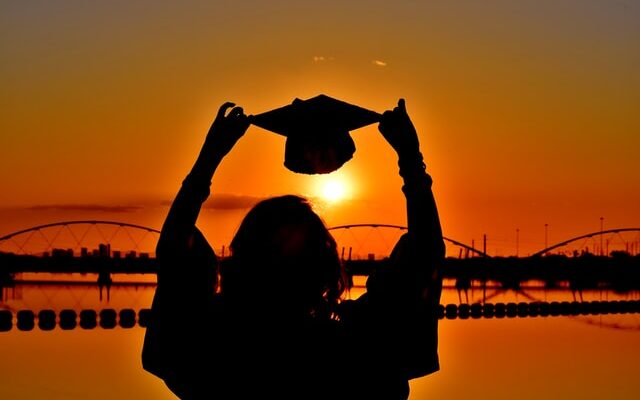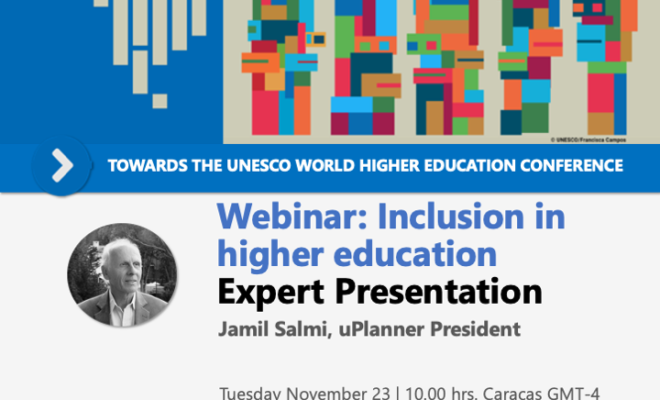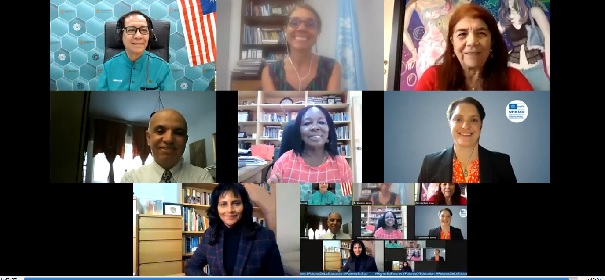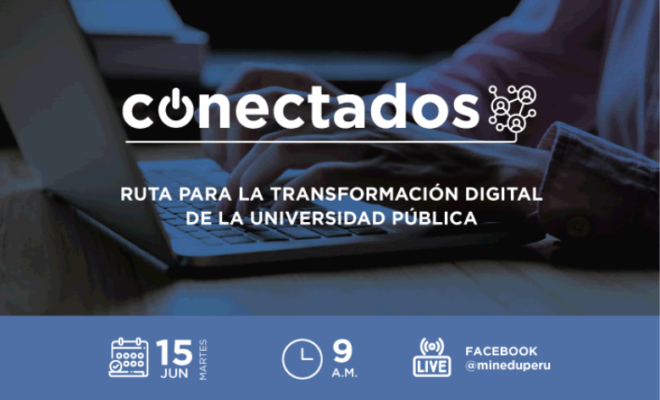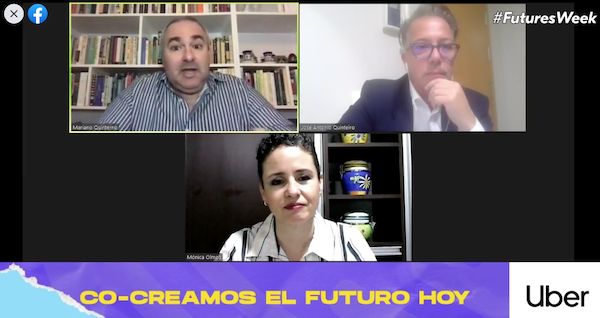A panel of experts on higher education and sustainability agreed that universities need to define the meaning of sustainability

On Friday, September 18th, 2020, at 1:30 pm. (Spain time) Andrew Jack, Global Education Editor of the Financial Times; Francesc Pedró, Director of UNESCO International Institute for Higher Education in Latin America and the Caribbean (UNESCO-IESALC) and Phil Baty, Chief Knowledge Officer at the Times Higher Education, engaged in a virtual dialogue on sustainability in higher education. Carina Hopper, university lecturer and co-founder of La Belle EDuC and moderator of the panel of experts, opened the session with a question: What are we doing right and what are we doing wrong at the moment in higher education in terms of sustainability?.
According to Baty some universities are making conscious their mission in terms of putting the sustainable development goals (SDGs) in the heart of their mission. For Jack the real challenge is to be more rigorous about it, providing quality of the data and doing more within the academic community to incorporate sustainability as part of all curricula. In terms of what has been achieved so far, Pedró invited to follow those higher education institutions (HEI) that have successfully changed the way they operate, impacting the wider community in terms of reduction of waste and energy consumption, among others, initiatives that should not be underestimated because they lead the way for more actions. “We can expect the pandemic will have an effect on the way universities manage sustainability”, he added.
How far can sustainability translate into practice? What does it mean to a specific career? Is it enough if it remains as a marginalised subject or should it be the absolute leading paradigm in higher education? Should students be able to choose whether to study sustainability?, were some of questions posed as starters for the discussion.
For Pedró there are basic elements that should be incorporated in higher education curricula, where professors have a leading role in contributing to development, besides having elective subjects that can provide more information on SDGs. In this same note, Jack added the importance of having a holistic education for opening horizons… “It would be unfortunate for universities not to have an offer. But we need to define what sustainability means”. Baty agreed on this topic, adding that sustainability based on evidence should be accessible to students, put into practice more than used as a label as an integrated part of education. But also, it needs to be part of the daily practices within the HEI in order to commit to a more sustainable world, as indicated by Pedró.
The role of rankings in encouraging sustainability in higher education
Rankings should try to hold institutions accountable through transparency and in data. Is there a role for rankings? More than simply quantifying, they explore the ways to improve, said Jack. For Baty rankings can be “cruel and simplistic”, but also a help to measure how geopolitics and education impact society. “It helps institutions to be more strategic, it facilitates collaboration, it brings institutions together”. On this subject Pedró has a different perspective: “Besides agreeing on the importance of getting reliable data and translating it into evidence, at UNESCO we understand there is room for everyone to play roles but we also understand that the ranking is a reflection of a theoretical framing. But who is creating and defining that framing? We support a more contextualized perspective about the way in which one particular institution can do things to improve learning and research and the commitment with the community… At the UN are advocating for having a different approach (…) We prefer to look at the contribution of HE into SDGs within the poorest universities and countries”, Pedró added, reminding that the IESALC tries to find ways to supports the SDGs.
Towards the end of the dialogue, Francesc Pedró, asked his fellow experts how the media could support the SDG and what its role in higher education (HE) should be? For Jack the role of the media in higher education is to stimulate, support, and motivate HEIs to think about solutions to the problems that arise in societies. Also, to draw attention to the importance of technology in academia, what needs to be innovated. He sees HE as a media organization in itself and that the gaps and imbalances continue to exist due to the difficult access to HE in countries such as England and the United States, and in Europe, due to its high cost. He emphasized that HE should be free.
For Baty, the media has the duty to share best practices in HE and stressed the power of the rankings and the importance of collaboration and teamwork to achieve the SDGs for a better future. As a final word, Pedró stressed the importance of seeking a greater balance between the media and governments, finding various ways to provide quantitatively assistance to HEI and fostering self regulation in universities. Other needs included to motivate the role of research and teaching; regulate public policies, analyze how positive results should be measured in order to share them with the rest of the academic community and thus encourage the replication of good practices through the media.
RELATED ITEMS

